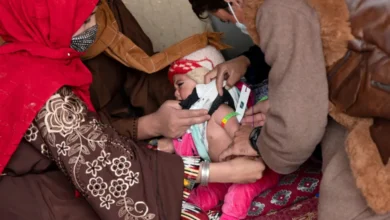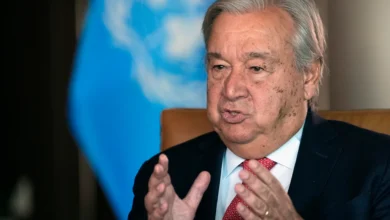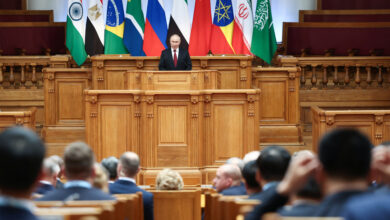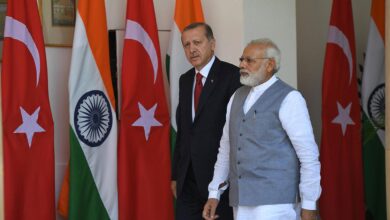Almost 100 people killed in Bangladesh as protesters renew call for PM to quit
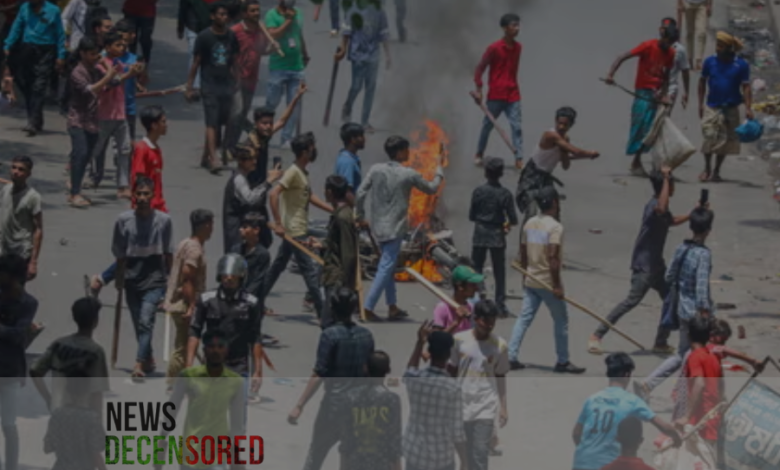
DHAKA, Bangladesh (AP) — Nearly 100 people were killed and hundreds more wounded Sunday as anti-government protests flared up across Bangladesh. Protesters demanded the prime minister resign, and the prime minister accused them of “sabotage” and cut off mobile internet access in an attempt to quell the unrest.
Prothom Alo, the country’s largest Bengali-language daily, said at least 95 people, including at least 14 police officers, had been killed in the violence. Channel 24 News reported that at least 85 people had been killed.
The military announced a new curfew on Sunday evening for an indefinite period, including in the capital, Dhaka, district headquarters, and other areas. Earlier, The government imposed a curfew with some exceptions in Dhaka and elsewhere. Protesters are demanding the resignation of Prime Minister Sheikh Hasina following protests last month that began with students calling for an end to a quota system for government jobs as violence has escalated, leaving more than 200 people dead.
As renewed violence escalated, Hasina said protesters who engaged in “vandalism” and destruction were no longer students but criminals and said people should deal with them with an iron fist. The ruling Awami League said the demand for Hasina’s resignation showed that the main opposition party, the Bangladesh Nationalist Party, had taken control of the protests. The now-banned Jamaat-e-Islami party .
The government also declared a public holiday on Sunday from Monday to Wednesday, and the courts were closed indefinitely. Mobile internet services were cut, and Facebook and messaging apps, including WhatsApp, became inaccessible. Minister of State for Information and Broadcasting Mohammed Ali Arafat said the service cuts were aimed at helping prevent violence.
At least 11,000 people have been arrested in recent weeks. The unrest has also led to the closure of schools and universities nationwide, and authorities once imposed a curfew. A shoot-on-the-spot curfew.
Protesters called for “non-cooperation,” and authorities urged people not to pay taxes or utility bills or go to work on Sunday, a working day in Bangladesh. Offices, banks, and factories were open, but commuters in Dhaka and other cities faced challenges getting to work and protesters attacked the Bangabandhu Sheikh Mujib Medical University, a major public hospital in Dhaka’s Shahbag area, and burned several vehicles.
Video footage showed protesters vandalizing a prisoner’s truck at Dhaka’s central magistrate’s court. Other videos showed police firing at crowds with live ammunition, rubber bullets, and tear gas. Protesters set fire to vehicles and ruling party offices. Some carried sharp weapons and sticks, according to television footage.
In Dhaka’s Uttara district, police fired tear gas to disperse hundreds of people who blocked a major highway. Protesters attacked homes and vandalized a welfare office in the area where hundreds of ruling party activists had taken up positions. Witnesses said some crude bombs exploded, and gunfire was heard. In the east of the district, 20 people were shot.
At least 18 people were killed in the northwestern Sirajganj district. That figure included 13 police officers who died after protesters attacked a police station, according to police headquarters in Dhaka. Another officer was killed in the eastern Comilla district, police said.
Five people were killed in Feni district in southeastern Bangladesh when clashes broke out between Hasina supporters and protesters. Asif Iqbal, a resident doctor at a government hospital in Feni, told reporters that the hospital had received five bodies, all with bullet wounds. It was not clear whether they were protesters or ruling party activists.
In the Munshiganj area near Dhaka, four people were declared dead after being taken to hospital, according to hospital official Abu Hina. Violent clashes erupted in more than a dozen districts, including Chittagong, Bogura, Magura, Rangpur, Kishoreganj, and Sirajganj, as protesters backed by the main opposition party clashed with police and activists of the ruling Awami League and its affiliated bodies, Jamuna TV news channel reported.
Protests began last month when students demanded an end to a quota system that reserved 30 percent of government jobs for families of veterans who fought in Bangladesh’s 1971 war of independence against Pakistan.
As the violence escalated, the country’s Supreme Court ruled that the veterans’ quota should be reduced to 5%, with 93% of jobs allocated based on merit. The remaining 2% would be reserved for members of ethnic minorities, transgender people, and people with disabilities.
The system also allocates jobs for members of ethnic minorities, people with disabilities, and transgender people, whose quotas were cut from 26% to 2% under the ruling. Hasina’s administration has accused opposition parties and their student wings of inciting the violence, in which several state-owned institutions were also burned or vandalized.

